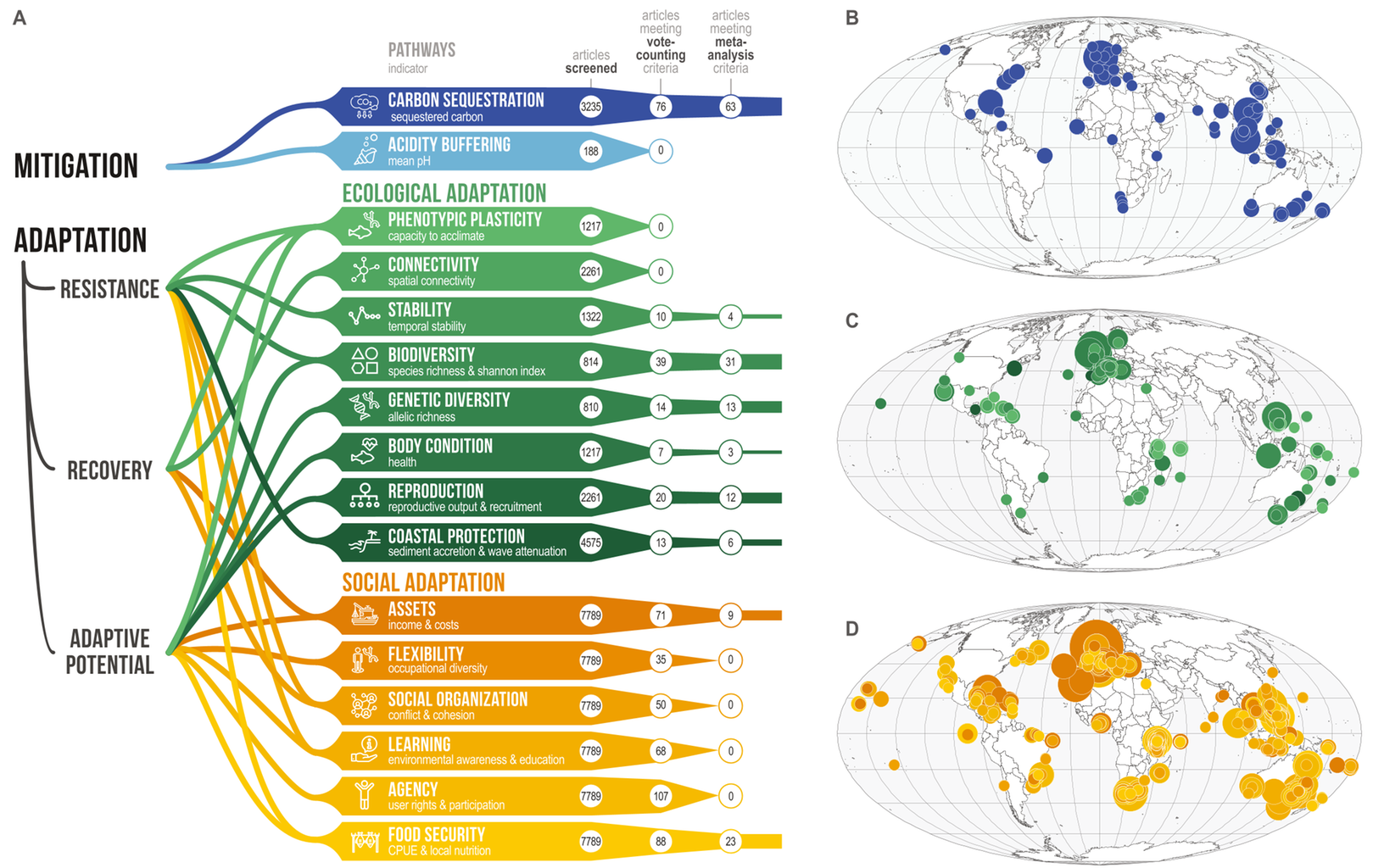OCEAN Conservation
Ocean conservation boosts climate change mitigation and adaptation

Fish shoal underwater on deep blue sea water with coral reef background. Photo: Vitali Sokol.
Marine protected areas can significantly contribute to climate change mitigation and adaptation, according to new study
- Marine protected areas can enhance carbon sequestration, coastal protection, biodiversity, the reproductive capacity of marine organisms, as well as fishers’ catch and income
- Most of the benefits are only achieved in fully or highly protected areas and increase with their age
- This manuscript provides an important step towards better integration of marine conservation into the climate and biodiversity discussions
A major new analysis published in One Earth shows that marine protected areas can enhance carbon sequestration, coastal protection, biodiversity, the reproductive capacity of marine organisms, as well as fishers’ catch and income.
Most of these benefits are only achieved in fully or highly protected areas and increase with their age.
"Our research paper ultimately demonstrates that marine conservation can be a key tool for achieving the goals of the United Nations Sustainable Development Agenda and the Paris Climate Agreement," says centre researcher Robert Blasiak, who co-authored the paper.
A clear signal
Built on an extensive and systematic literature review of more than 22,000 existing publications on 241 different marine protected areas, this publication addresses the knowledge gap around their contribution to fighting climate change, and features 16 ecological and social pathways through which marine protected areas could contribute to climate change mitigation and adaptation.
Our research paper ultimately demonstrates that marine conservation can be a key tool for achieving the goals of the United Nations Sustainable Development Agenda and the Paris Climate Agreement.
Robert Blasiak, co-author
"These findings show why we must protect marine ecosystems. The upcoming COP27 in Sharm El Sheik and COP15 in Montreal are the right arenas for doing so", says coordinating lead author Joachim Claudet, from the French National Center for Scientific Research (CNRS) and president of the Scientific Committee of the Ocean & Climate Platform.
The clear signal that the level of protection should take precedence in the design of marine protected areas is in stark contrast to the current paradigm of ocean protection globally, with the proportion of fully and highly protected areas plummeting worldwide as countries have rushed to meet conservation commitments.
 Zoom image
Zoom imagePathways through which marine protected areas can contribute to climate change mitigation or adaptation, with quantiative and spatial assessment of available information.
“Ensuring high protection levels in existing marine protected areas should be the priority to secure climate benefits to coastal social-ecological systems”, says lead author Juliette Jacquemont, from CNRS, the Ocean & Climate Platform, and now based at the University of Washington.
Including marine conservation in climate action
Released a few weeks before the COP27 of the United Nations Framework Convention on Climate Change (UNFCCC) in Sharm El Sheik, and the COP15 of the Convention on Biological Diversity (CBD) in Montreal, this publication highlights the need to jointly combat the climate change and biodiversity loss crises.
“Although marine protected areas alone cannot offset all climate change impacts, they are a useful tool for climate change mitigation and adaptation of social-ecological systems,” write the authors.
While COP27 is expected to witness an upward revision of ambition regarding nationally determined contributions, and as marine protected areas are increasingly integrated into the climate strategies of state parties to the UNFCCC, this manuscript provides an important step towards better integration of marine conservation into the climate and biodiversity discussions.
Read Ocean conservation boosts climate change mitigation and adaptation
Jacquemont, J., Blasiak, R., Le Cam, C., Le Gouellec, M., Claudet, J. 2022. Ocean conservation boosts climate change mitigation and adaptation. One Earth.
DOI: 10.1016/j.oneear.2022.09.002








